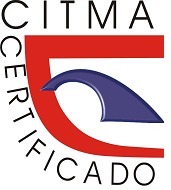Conocimiento conceptual para el modelado de procesos de negocios: Revisión de la literatura
Palabras clave:
procesos de negocio, modelación de procesos, conocimiento conceptual, recursos ontológicosResumen
La modelación de procesos requiere conocimiento conceptual para comprender y describir la realidad y, luego, tomar decisiones de cuáles conceptos y detalles deben ser capturados y representados. Para satisfacer esta necesidad, se aplica un método que permite recuperar y explorar recursos conocimiento en el dominio de los procesos. El propósito es adquirir conocimiento conceptual sobre los diferentes aspectos que deben ser tenidos en cuenta durante la modelación de procesos. Como resultado de aplicar el método, se obtienen 1132 referentes bibliográficos y recursos ontológicos, de los cuales se estudiaron 43. Dicho estudio permitió identificar conceptos relevantes, invariantes, que estructuran el conocimiento que debe ser tenido en cuenta durante el diseño y modelado de los procesos de negocio. La conceptualización de procesos de negocio se presenta, agrupada en tres dimensiones: dimensión de elemento, dimensión de restricciones y dimensión de intencionalidad.
Citas
Ahmad, M., Odeh, M., & Green, S. (2018). Metrics for Assessing the Basic Alignment Between Business Process and Enterprise Information Architectures with Reference to the BPAOntoEIA Framework. Paper presented at the 2018 International Arab Conference on Information Technology (ACIT).
Aleatrati Khosroshahi, P., Hauder, M., Volkert, S., Matthes, F., & Gernegroß, M. (2018). Business Capability Maps: Current Practices and Use Cases for Enterprise Architecture Management. Paper presented at the 51 st Hawaii International Conference on System Sciences, Hawaii.
Anastassiu, M., Santoro, F. M., Recker, J., & Rosemann, M. (2016). The quest for organizational flexibility: Driving changes in business processes through the identification of relevant context. Business Process Management Journal, 22(4), 763-790. doi:doi:10.1108/BPMJ-01-2015-0007
Beerepoot, I., van de Weerd, I., & Reijers, H. A. (2019). Business Process Improvement Activities: Differences in Organizational Size, Culture, and Resources, Cham.
Ben Hassen, M., Turki, M., & Gargouri, F. (2017). Extending sensitive business process modeling with functional dimension for knowledge identification. Paper presented at the International Conference on e-Business (ICE-B 2017). In International Joint Conference on e-Business and Telecommunications (ICETE 2017), Madrid, Spain.
Borges, E., Fantinato, M., Aksu, U., Reijers, H. A., & Thom, L. (2019). Monitoring of Non-functional Requirements of Business Processes based on Quality of Service Attributes of Web Services. Paper presented at the 21st International Conference on Enterprise Information Systems (ICEIS 2019), Heraklion, Crete, Greece.
Bradford, L., Rosemann, M., Seidel, S., & Ter Hofstede, A. (2006). Developing a Business Process Reference Model for the Screen Business - A Design Science Research Case Study. Paper presented at the Proceedings of the 17th Australasian Conference on Information Systems, Australia, South Australia, Adelaide.
Brocke, J. v., Zelt, S., & Schmiedel, T. (2016). On the role of context in business process management. International Journal of Information Management, 36(3), 486-495. doi:https://doi.org/10.1016/j.ijinfomgt.2015.10.002
Castro, C., Fantinato, M., Aksu, U., Reijers, H., & Thom, L. (2019). Towards a Conceptual Framework for Decomposing Non-functional Requirements of Business Process into Quality of Service Attributes. Paper presented at the 21st Int. Conf. on Enter. Inf. Syst.
de Oca, I. M.-M., Snoeck, M., Reijers, H. A., & Rodríguez-Morffi, A. (2015). A systematic literature review of studies on business process modeling quality. Information and Software Technology, 58, 187-205.
Derguech, W., Bhiri, S., & Curry, E. (2017). Designing business capability-aware configurable process models. Information Systems, 72(Supplement C), 77-94. doi:https://doi.org/10.1016/j.is.2017.10.001
Derguech, W., Bhiri, S., & Curry, E. (2018). Using Ontologies for Business Capability modelling: Describing What Services and Processes Achieve. The Computer Journal, 61(7), 1075-1098. doi:10.1093/comjnl/bxy011
Dina, T. (2018). Process architecture development using Riva and ARIS: comparative study. Business Process Management Journal, 24(3), 837-858. doi:doi:10.1108/BPMJ-04-2016-0086
Elsbach, K., & Stigliani, I. (2018). New information technology and implicit bias. Academy of Management Perspectives, 33(2). doi:10.5465/amp.2017.0079
Erol, S. (2017). Recalling the rationale of change from process model revision comparison – A change-pattern based approach. Computers in Industry, 87, 52-67. doi:https://doi.org/10.1016/j.compind.2017.02.003
Erol, S. (2018). A process model of business process model reuse. in press. doi:10.13140/RG.2.2.32862.54088
Fan, S., Hua, Z., Storey, V. C., & Zhao, J. L. (2016). A process ontology based approach to easing semantic ambiguity in business process modeling. Data & Knowledge Engineering, 102, 57-77. doi:https://doi.org/10.1016/j.datak.2016.01.001
Heidari, F., & Loucopoulos, P. (2014). Quality evaluation framework (QEF): Modeling and evaluating quality of business processes. International Journal of Accounting Information Systems, 15(3), 193-223.
Heidari, F., Loucopoulos, P., & Brazier, F. (2013). An Ontology Driven Quality Requirements Specification and Measurement.
Henkel, M., Zdravkovic, J., Valverde, F., & Pastor, O. (2018). Capability Design with CDD. In K. Sandkuhl & J. Stirna (Eds.), Capability Management in Digital Enterprises (pp. 101-116). Cham: Springer International Publishing.
Huang, S. Y., Lee, C.-H., Chiu, A.-A., & Yen, D. C. (2015). How business process reengineering affects information technology investment and employee performance under different performance measurement. Information Systems Frontiers, 17(5), 1133-1144. doi:10.1007/s10796-014-9487-4
Karni, R. (2015). Assessing the functional alignment of a business process.
Konys, A. (2018). Knowledge systematization for ontology learning methods. Procedia Computer Science, 126, 2194-2207. doi:10.1016/j.procs.2018.07.229
Koutsopoulos, G., & Bider, I. (2018). Business Process Canvas as a Process Model in a Nutshell, Cham.
Krysińska, J., Janaszkiewicz, P., Prys, M., & Różewski, P. (2018). Knowledge Resources Development Process In Business Process Outsourcing (BPO) Organizations. Procedia Computer Science, 126, 1145-1153. doi:https://doi.org/10.1016/j.procs.2018.08.052
Lapouchnian, A., Yu, E., & Sturm, A. (2015). Design Dimensions for Business Process Architecture, Cham.
Löffler, A., Prifti, L., Knigge, M., Kienegger, H., & Krcmar, H. (2018). Teaching Business Process Change in the Context of the Digital Transformation: A Review on Requirements for a Simulation Game. Multikonferenz Wirtschaftsinformatik (MKWI).
Lohrmann, M. (2015). Business Process Quality Management. Ulm University.
Malta, P., & Sousa, R. D. (2016). Process Oriented Approaches in Enterprise Architecture for Business-IT Alignment. Procedia Computer Science, 100(Supplement C), 888-893. doi:https://doi.org/10.1016/j.procs.2016.09.239
Martini, M., Pinggera, J., Neurauter, M., Sachse, P., Furtner, M. R., & Weber, B. (2016). The impact of working memory and the “process of process modelling” on model quality: Investigating experienced versus inexperienced modellers. Scientific reports, 6.
Medina León, A., Nogueira Rivera, D., Hernández-Nariño, A., & Comas Rodriguez, R. (2019). Procedimiento para la gestión por procesos: métodos y herramientas de apoyo. Ingeniare. Revista chilena de ingeniería, 27, 328-342. doi:10.4067/S0718-33052019000200328
Mohapatra, S., & Choudhury, A. (2016). Readiness Framework for Business Process Re‐engineering. Strategic Change, 25(5), 509-524.
Norta, A., Grefen, P., & Narendra, N. C. (2014). A reference architecture for managing dynamic inter-organizational business processes. Data & Knowledge Engineering, 91, 52-89. doi:https://doi.org/10.1016/j.datak.2014.04.001
Ortega-González, Y. C., Blanco-González, J., Cobiellas-Herrera, L. M., Delgado-Fernández, M., & Pavón-González, Y. (2014). Diagnóstico del conocimiento ontológico de una comunidad de práctica en el dominio de los sistemas de información. Ingeniería Industrial, 35(1), 60-73.
Ortega-González, Y. C., Delgado-Fernández, M., Hernández-Güell, C., Pavón-González, Y., & Infante-Abreu, M. B. (2020). Catálogo de patrones y métodos de exploración de ontologías para la sistematización del conocimiento en la Integración de las Tecnologías de Información. Revista Cubana de Transformación Digital, 1(3), 124-142.
Ortega González, Y. C., Blanco González, J., Cobiellas Herrera, L. M., Delgado Fernández, M., & Pavón González, Y. (2014). Diagnóstico del conocimiento ontológico de una comunidad de práctica en el dominio de los sistemas de información. Ingeniería Industrial, 35(1), 60-73.
Ouali, S., Mhiri, M., & Gargouri, F. (2019). MBOPS: Towards A Multidimensional Business Ontology based-Premodeling System. Procedia Computer Science, 159, 774-783. doi:https://doi.org/10.1016/j.procs.2019.09.236
Pavón-González, Y., Ortega-González, Y. C., Infante Abreu, M. B., Souchay-Alzugaray, S., & Cobiellas-Herrera, L. M. (2021). Método de modelado conceptual de procesos de negocio a niveles ontológico y situado con alcance de arquitectura empresarial. DYNA, 88(216), 227-236. doi:10.15446/dyna.v88n216.92206
Plataniotis, G. (2017). EA Anamnesis-A Conceptual Framework for Enterprise Architecture Rationalization. [Sl: sn].
Poels, G., Ruiz, F., & García, F. (2019). An Experience in Modelling Business Process Architecture. Paper presented at the International Conference on the Quality of Information and Communications Technology.
Project, E. (2016). The Essential project official website. Retrieved from http://www.enterprise-architecture.org
Rahimi, F. (2016). Management of business process design in global implementation of enterprise resource planning systems.
Razavian, M., Turetken, O., & Vanderfeesten, I. (2017). When Cognitive Biases Lead to Business Process Management Issues, Cham.
Rojas Grass, O. Y., Silega Martínez, N., & Sánchez Palmero, M. A. (2019). Revisión sobre directrices prácticas para la calidad del modelado de procesos de negocio. Revista Cubana de Ciencias Informáticas, 13, 127-142.
Ronaldo, B., Ribeiro, G. S. V., & de, P. S. I. D. (2017). The BPM lifecycle: How to incorporate a view external to the organization through dynamic capability. Business Process Management Journal, 23(1), 155-175. doi:doi:10.1108/BPMJ-12-2015-0175
Salles, G. B., Fantinato, M., Barros, V. A., & Albuquerque, J. P. D. (2018). Evaluation of the StrAli-BPM approach: strategic alignment with BPM using agreements in different levels. International Journal of Business Information Systems, 27(4), 433-465.
Santoro, F. M., Baião, F., Revoredo, K., & Nunes, V. T. (2017). Modeling and Using Context in Business Process Management: A Research Agenda.
Sarra, M., Luc, C., & Sylvie, T. (2018). Supporting business processes through human and IT factors: a maturity model. Business Process Management Journal, 24(4), 985-1006. doi:doi:10.1108/BPMJ-11-2016-0232
Satyal, S., Weber, I., Paik, H.-y., Di Ciccio, C., & Mendling, J. (2018). Business Process Improvement with the AB-BPM Methodology. Information Systems.
Silega, N., Teresa-Loureiro, T., Noguera, M., & Pedro-Febles, J. (2017). Framework basado en ontología para la descripción y validación de procesos de negocio. Ingeniería Industrial, 38, 276-288.
Snyder, H. (2019). Literature review as a research methodology: An overview and guidelines. Journal of Business Research, 104, 333-339. doi:https://doi.org/10.1016/j.jbusres.2019.07.039
Song, R., Vanthienen, J., Cui, W., Wang, Y., & Huang, L. (2019, June 26–28, 2019,). Towards a comprehensive understanding of the context concepts in context-aware business processes. Paper presented at the S-BPM ONE'19, Seville, Spain
Tbaishat, D. (2017). Business process modelling using ARIS: process architecture. Library Management, 38(2/3), 88-107.
Vom Brocke, J., Schmiedel, T., Recker, J., Trkman, P., Mertens, W., & Viaene, S. (2014). Ten principles of good business process management. Business Process Management Journal, 20(4), 530-548.
vom Brocke, J., Zelt, S., & Schmiedel, T. (2016). On the role of context in business process management. International Journal of Information Management, 36(3), 486-495.
Zacarias, M., & Martins, P. V. (2012). Aligning Business Processes and Work Practices. Procedia Technology, 5 (Supplement C), 234-243. doi:https://doi.org/10.1016/j.protcy.2012.09.026
Descargas
Publicado
Cómo citar
Número
Sección
Licencia
Derechos de autor 2021 Yanelis Pavón González, Yadary Cecilia Ortega González, Marta Infante Abreu

Esta obra está bajo una licencia internacional Creative Commons Atribución-NoComercial 4.0.













